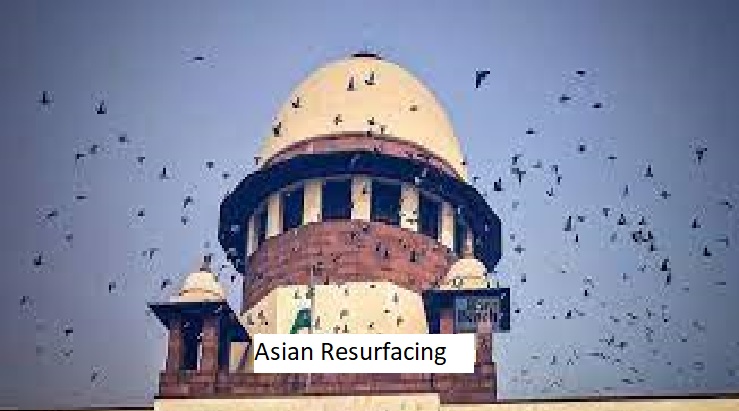


In a significant turn of events, the Supreme Court expressed reservations on Friday (December 1) concerning its 2018 judgment in the case of Asian Resurfacing of Road Agency P. Ltd. Director v. Central Bureau of Investigation. This judgment stipulated that interim orders of stay granted by High Courts and other courts in civil and criminal cases would automatically expire after a period of six months unless specifically extended.
The Asian Resurfacing ruling further asserted that trial courts, upon the expiration of the six-month period, could resume proceedings without waiting for any other intimation, unless an express order extending the stay was produced. However, the Supreme Court, comprising a three-judge bench led by Chief Justice of India DY Chandrachud, along with Justice JB Pardiwala and Justice Manoj Misra, noted potential miscarriages of justice due to the automatic vacation of stay orders. Consequently, the bench referred the matter to a larger bench for reconsideration, highlighting the fact that the Asian Resurfacing decision was rendered by a coordinate bench of three judges.
The bench deliberated on an appeal filed by the High Court Bar Association Allahabad, based on a Certificate of Appeal granted by the Allahabad High Court. The appeal raised doubts regarding the Asian Resurfacing judgment. In its November 3 judgment, a three-judge bench of the Allahabad High Court framed ten questions for the Supreme Court's consideration concerning the automatic vacation of stay.
Senior Advocate Rakesh Dwivedi, representing the High Court Bar Association, argued that the judgment created several difficulties. He pointed out that the Asian Resurfacing bench was primarily addressing a different legal issue, and the directions related to automatic stay vacation were, in fact, in the nature of ancillary observations.
The Supreme Court bench, led by the Chief Justice, acknowledged some of the concerns raised by Dwivedi. While recognizing that indefinite stays could unduly prolong civil or criminal proceedings, the bench emphasized the need to consider that delays were not solely due to the conduct of the parties involved. Court inefficiencies could also contribute to delays.
The bench highlighted that the actual issue in Asian Resurfacing was whether an order framing charges constituted an interlocutory order and whether the High Court had the power to stay such an order. However, while addressing these issues, the Asian Resurfacing bench issued directions regarding the automatic vacation of stay orders in both civil and criminal trials.
The Supreme Court expressed reservations about the broad formulation of the principles in Asian Resurfacing, emphasizing that the automatic vacation of stay without a judicial assessment of whether the stay should be extended might lead to a miscarriage of justice.
Referring the matter to a larger bench of five judges, the Court also sought the assistance of either the Attorney General for India or the Solicitor General of India. The Chief Justice indicated the necessity to reconsider Asian Resurfacing and mentioned a pending review in the same case. The Court expressed optimism in resolving the matter efficiently, suggesting it might not take more than half an hour to reach a resolution.
TAGS: Supreme Court Asian Resurfacing judgment automatic stay vacation reservations reconsideration